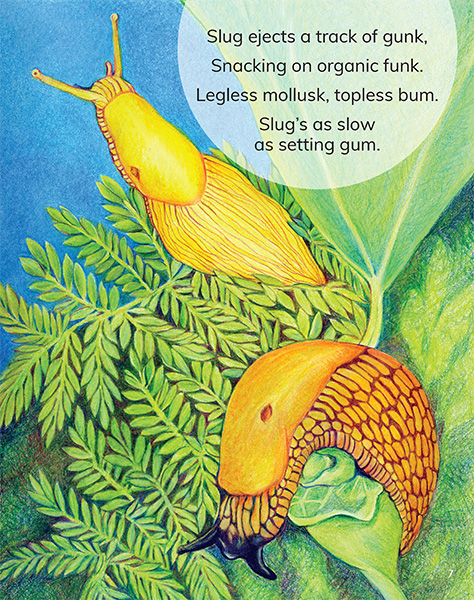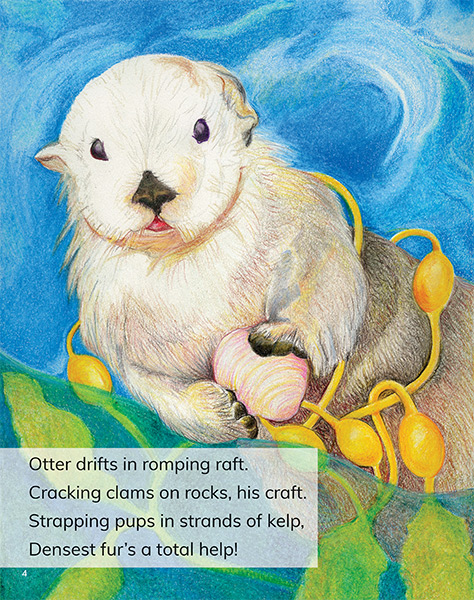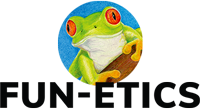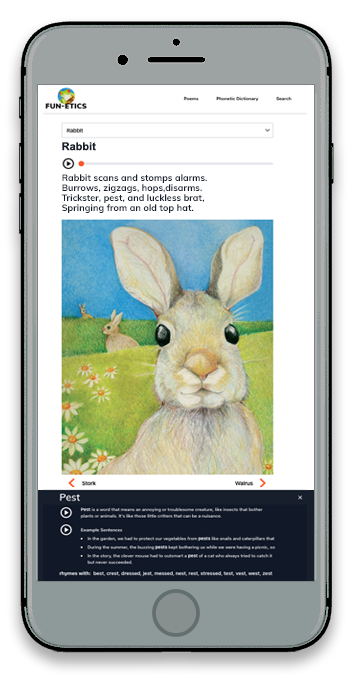FUN-ETICS™ is a resource that makes phonics fun. It engages students with rich exciting vocabulary in the irresistible form of a delightful simple four line poem, every word of which can be successfully sounded out by new readers. As proof of concept, we have developed two early elementary books of animal themed poetry (FUN-ETICS™: Brilliant Animals and FUN-ETICS™: Exceptional Animals), an interactive app, and a FUN-ETICS™ game called “Sound Out”.





The Fun-Etics app gives you the opportunity to listen to the author read the poem aloud on each page. You can also click on each individual word in the poem to get a simple definition, three example sentences and other phonetic words that rhyme with the chosen word! The phonetic dictionary provides the user with a selection of phonetic words to create you own Fun-Etic. Explore! Have FUN with phonics!
 New readers and second language learners achieve immediate success because they are only exposed to completely phonetic words. Throughout the early foundation-building stage every letter in the alphabet is given one distinct sound that is always pronounced in the same way, which allows the reader to simply sound out each letter to form instantly recognizable words.
New readers and second language learners achieve immediate success because they are only exposed to completely phonetic words. Throughout the early foundation-building stage every letter in the alphabet is given one distinct sound that is always pronounced in the same way, which allows the reader to simply sound out each letter to form instantly recognizable words.
Once the learner develops a mastery of completely phonetic words, then spelling and pronunciation “exceptions to the rules” are introduced in a manageable and engaging step-by-step sequence until learners are ready to read anything they choose.
Once students have reached a level of mastery using only strictly phonetic words, then they have the competency and enthusiasm to deal confidently with “the exceptions” in the companion book FUN-ETICS: Exceptional Animals.
The exceptions are introduced one-by-one, and are highlighted with bright colors. Examples of “exceptions” are “ph” makes the “fuh” sound, “ch” makes the “chuh” sound, etc. Importantly, apart from “the exception” being taught in any given poem all of the other words continue to be phonetic so that readers can focus special attention on the exception in question.
Finally, I think it’s also important to stress how essential the poetic structure is to the system. Key to making this idea possible was recognizing the need to create a structure that was small enough to avoid requiring the use of any non-phonetic words, and big enough to support meaning, interest and humor. It had to be short and sweet, engaging and rewarding!



